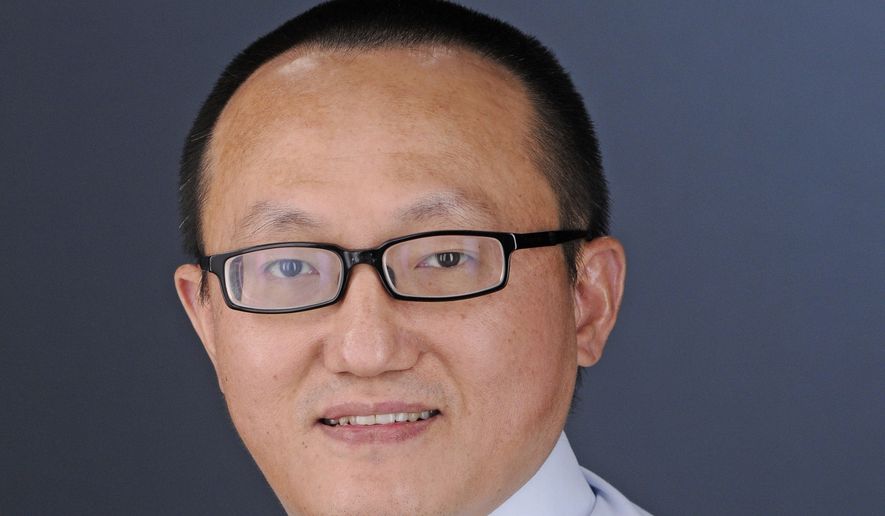A Kansas federal grand jury has issued a new indictment of a professor facing fraud charges for working in China’s program to recruit researchers with access to advanced technology.
Tao Feng, 47, is a professor at the University of Kansas who hid his work for China while employed by the university’s Center for Environmentally Beneficial Catalysis, the indictment alleges.
Prosecutors say some of Mr. Tao’s research was funded by the Energy Department and involved contract work involving more than $37,000 for the department, the National Science Foundation and other federal agencies. The center studies sustainable technology aimed at conserving natural resources and energy.
Court papers in the case revealed new details about how China’s government pays foreign specialists to provide technology and expertise as part of a strategic program to bolster China’s technological prowess.
“Tao is alleged to have defrauded the U.S. government by unlawfully receiving federal grant money at the same time that he was employed and paid by a Chinese research university — a fact that he hid from his university and federal agencies,” John Demers, assistant attorney general for national security, said in announcing an initial indictment in August.
The new indictment issued Wednesday charged Mr. Tao with two counts of wire fraud and one count of program fraud.
A lawyer for Mr. Tao had no immediate comment.
A 2018 White House report identified a Chinese government program called the Thousand Talents Plan that targeted overseas scholars with intellectual property rights, key technologies or patents sought by China. The report said an estimated 44,000 highly skilled Chinese personnel have returned since 2009 through the program.
According to the court papers, Mr. Tao worked at the university since 2014 and was recruited to a Chinese talent program called as Changjiang scholarship program. The program targets the hiring of people overseas with access to science and technology information.
He was then hired by Fuzhou University.
In 2018, Mr. Tao joined the Changjiang program but failed to disclose that to the University of Kansas as required. The professor also made several trips to China and in May 2018 signed a contract as part of the Changjiang program that required him to recruit two to three doctoral students and three to four master’s-level students every year.
It is not clear from the indictment whether the recruits were to be found in China or the U.S. The recruits were expected to collaborate with Mr. Tao on his research at Fuzhou.
Mr. Tao also was tasked with leading research on catalysis — how chemical reactions can be enhanced by catalysts — for the National Natural Science Foundation of China. Other work under the Chinese program called for developing international research and academic programs. He also worked temporarily at Japan’s Nagoya University.
Mr. Tao was arrested Aug. 21. Shortly afterward, according to the indictment, all mention of his membership on the faculty of Fuzhou University was deleted.
The case shows how China’s government offers lucrative salaries, access to state-of-the-art research facilities and academic titles to forge ties with overseas researchers and press them to recruit others, with a particular focus on “industrial sectors [China] considers important to its autonomy and national security.”
“The PRC achieved such rapid growth partially by offering scholarships or funding to foreign students or visiting professors studying or working at U.S. universities, and partially through ‘talent plans’ designed to encourage the transfer of original ideas and intellectual property from U.S. universities to PRC Government institutions in order to enhance the PRC’s scientific development, economic prosperity, and national security,” the indictment says.
Mr. Tao is scheduled for arraignment on the new indictment on Jan. 28. If convicted of the fraud charges, he faces up to 30 years in prison and up to a $500,000 fine.
The Kansas case is the second involving China’s talent recruitment programs.
In September, a government official, Liu Zhongsan, was indicted for visa fraud in New Jersey on charges of directing a Chinese front group that sought to recruit American university researchers.
The two cases are part of a major Justice Department crackdown on Chinese intelligence gathering activities and covert technology acquisition.
• Bill Gertz can be reached at bgertz@washingtontimes.com.




Please read our comment policy before commenting.